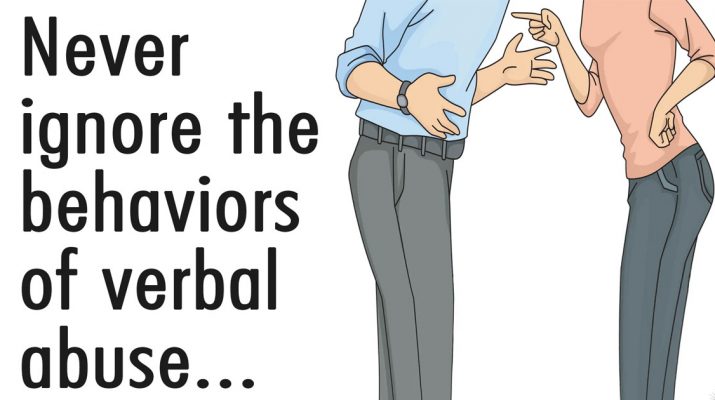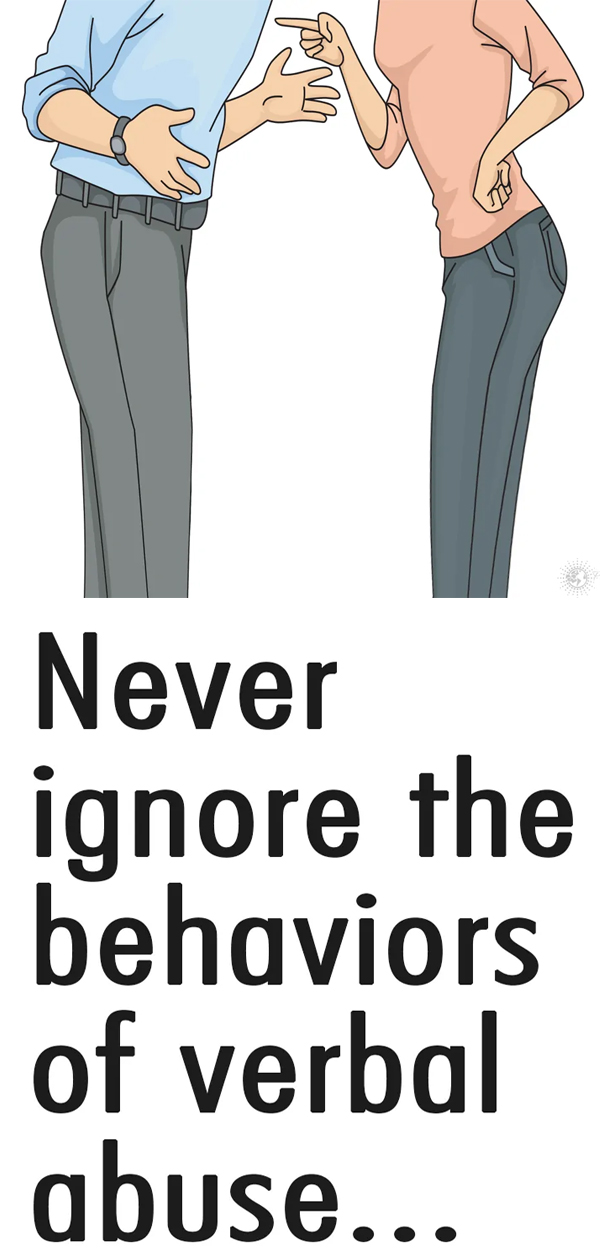In many cases, domestic or verbal abuse is something visible and physical – potentially causing physical injury.
In some instances, however, it’s less obvious. At these times, recognizing verbal abuse isn’t always easy. How do you know if your feelings are valid when you’re feeling unsafe because of someone’s words instead of their actions?
5 Behaviors That Reveal Verbal Abuse
1. They Take Away Your Independence.
Signs of verbal abuse and manipulation can start off subtly. At first, it may not seem odd that your loved one is jealous when you’re with other friends or family members, but if they’re stopping you from leaving the house without them, you should step back and assess the situation.
According to the National Domestic Violence Hotline, a verbally abusive loved one may also monitor your comings and goings. Additionally, they may tell you when you can or cannot leave the house, and even decide what you can wear. This controlling partner may diminish your independence in other ways as well, such as through overriding your choices or controlling your money. Sharing funds or a bank account is one thing, but your loved one should not be making all your financial choices or taking your money from you.
2. They Intimidate Or Threaten You.
Unfortunately, some of the clearest signs of domestic abuse are the most dangerous. Threats and acts of intimidation from a loved one are unignorable.
They are also unacceptable. You should never be in a position in which your loved one makes you feel unloved and unsafe. Even silent intimidation is considered verbal abuse. Body language makes up more than half of all communication, and intimidating body language is a major red flag in a relationship.
If a loved one is following or stalking you; looking at you or acting in ways that scare you; trapping you in your home; or damaging your things by throwing, kicking, or hitting when they are angry, seek help from someone you trust.
3. They Pressure You Into Doing Things You Don’T Want To Do.
Coercion is another form of verbal abuse that may not be easily recognizable. Coercive loved ones might convince you that you owe them favors because of your relationship. If this is the case, you should look at the situation objectively and remind yourself that your first obligation is to yourself and your safety.
If your loved one is pushing you to make a choice you don’t want to make or forcing you to have sex, know that they shouldn’t be making you do anything that goes against your personal comfort level.
4. They Gaslight You.
Gaslighting is a form of manipulation used to make victims question themselves and their own sanity. If your loved one is gaslighting you, they may tell you blatant lies or say that you’re making up stories or imagining things. This exhausting, dangerous manipulation tactic takes place and grows over time. It might not be something that you notice at first.
We all occasionally feel we’re too sensitive or that we’re doing everything wrong; however, if you’re constantly second-guessing yourself because your abusive loved one questions your point of view, you may be the victim of gaslighting. Ask someone you trust for their objective opinion of the situation and remind yourself that you aren’t always wrong.
5. They Make You Feel Worthless.
Offensive language and insults are more obvious signs of verbal abuse, but they aren’t the only routes your loved one may take to affect your thought patterns and sense of self. An abusive loved one may offhandedly tell you that you do everything wrong; or that you’re a bad child, significant other, or parent.
In addition, verbal abuse can be the absence of verbalizing. The “silent treatment” is a dangerous tool used to ignore the needs of another person that makes them feel as if they are not worth it.
This individual may also threaten to withhold attention or affection as punishment or humiliate you in front of friends and family. Try to remove yourself from these situations. Be positive about yourself and seek validation and refuge with supportive friends and family.
Final Thoughts
“It amazes me when education, religion and family values fail to create a human being.” – Anum Sattar
Domestic or verbal abuse can be difficult for a victim to recognize, especially when it has yet to become physical. This is why knowing the signs of verbal abuse is so important. If you or someone you care about is in a potentially abusive relationship, seek out a path to safety.


